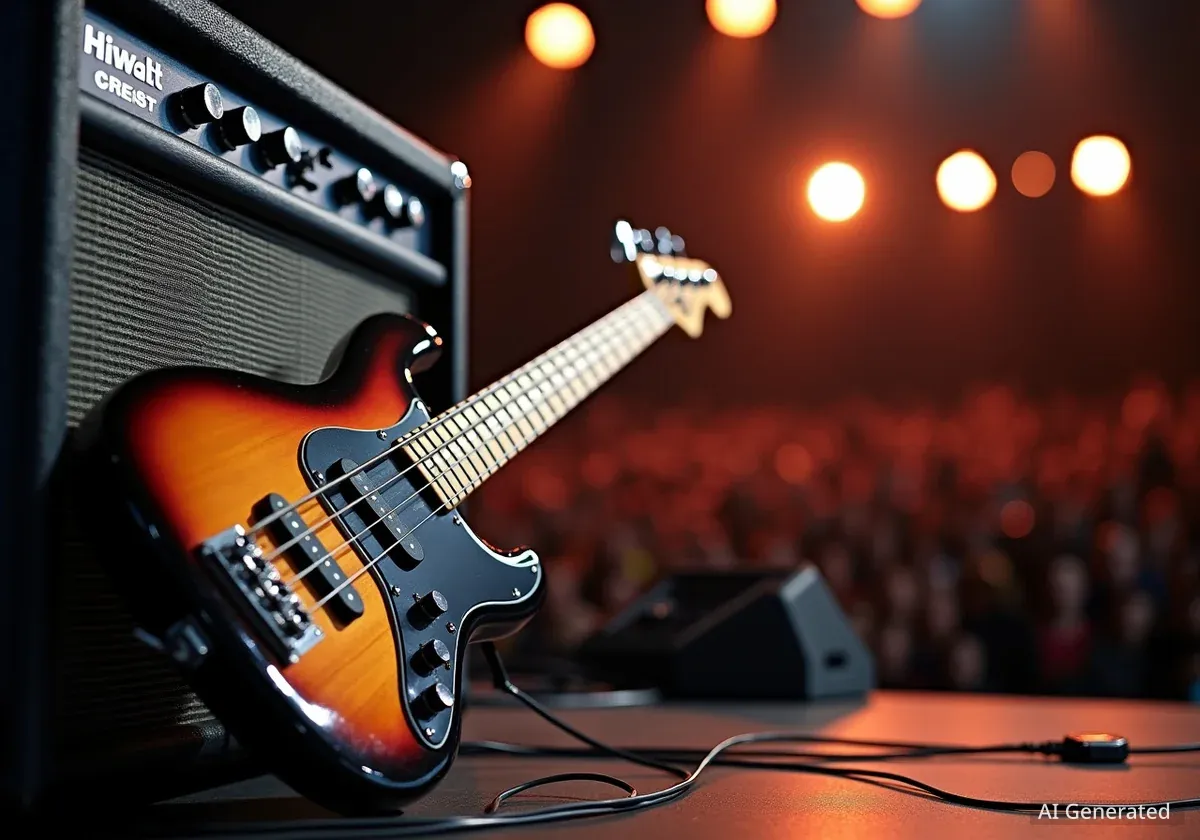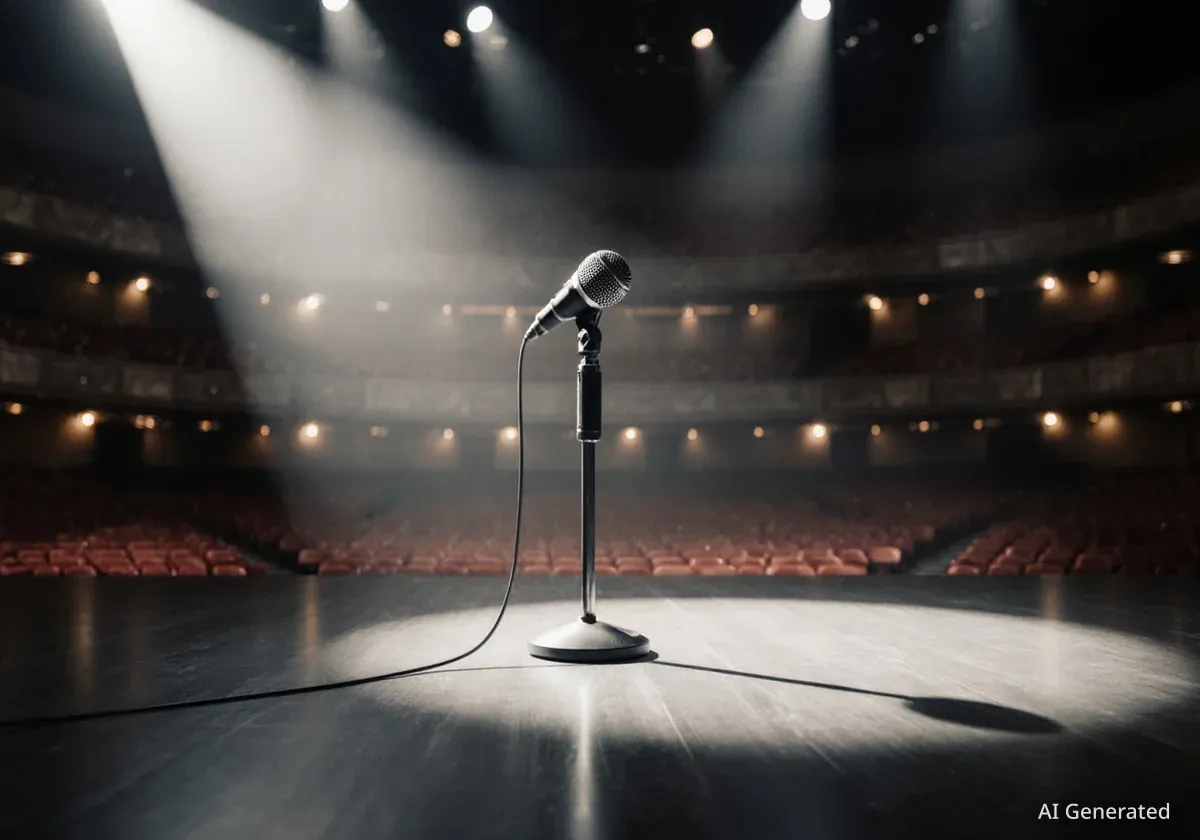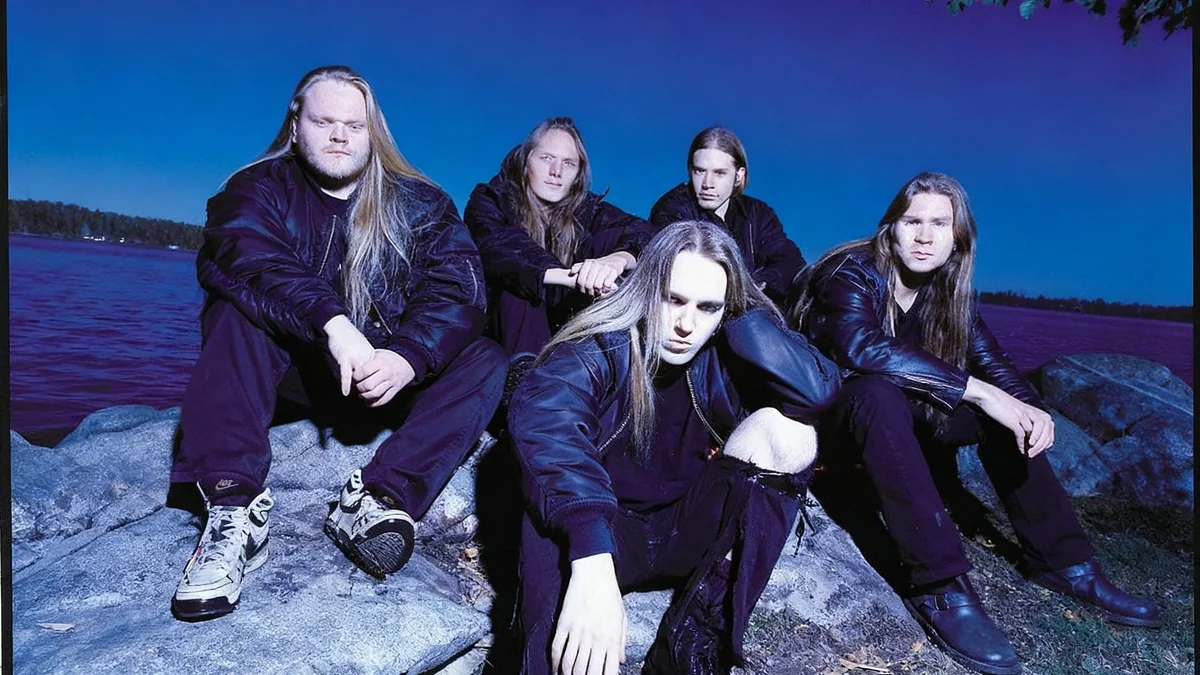Renowned musician Glenn Hughes, celebrated as 'The Voice of Rock' and a distinguished bassist, recently shared insights into his extensive career. With a new solo album, 'Chosen,' released this month, Hughes discussed his preferred bass gear, the evolution of his rig, and offered valuable advice for aspiring bass players. He also paid a heartfelt tribute to his late friend and fellow bassist, Andy Fraser of Free, emphasizing the importance of musical restraint.
Key Takeaways
- Glenn Hughes prefers Fender P-Basses for their versatility and groove.
- His early rig included Hiwatt amps, influenced by John Entwistle.
- Hughes owns a rare 1962 Fender Jazz Bass with original strings.
- He advises new bassists that 'less is more,' inspired by Andy Fraser.
- Hughes rarely modifies his vintage instruments, keeping them stock.
Evolution of a Bass Rig: From Trapeze to Solo Career
Glenn Hughes detailed how his bass setup has changed since his early days with the band Trapeze in the 1970s. He noted a clear progression in his equipment choices and playing style over the decades.
In the initial phase of his career with Trapeze, Hughes relied heavily on Hiwatt amplifiers. He did not incorporate pedals into his sound during this period. This approach highlighted a focus on the natural tone of his instrument and amplifier.
Hughes explained that his preference for Hiwatt amps began even before he joined Deep Purple. He considers them among the finest amplifiers available. This choice was significantly influenced by another legendary bassist.
"John Entwistle [of The Who] turned me onto Hiwatts in 1970. Hearing him play through Hiwatts was the game-changer for me."
This early adoption of Hiwatt gear set a foundation for his sound. When he moved to Deep Purple, he introduced a wah-wah pedal. This was the sole pedal he used with the band, indicating a minimalist approach to effects even as his music evolved.
Rig Evolution Fact
Glenn Hughes's first recording with Deep Purple, the album 'Burn,' featured him playing a Rickenbacker bass, a departure from his usual Fender P-Basses.
Preferred Instruments: The Enduring Appeal of Fender
Hughes discussed his favored bass guitars, revealing a consistent preference for Fender instruments throughout his career. He highlighted specific models that have shaped his sound.
For most of his career, Hughes has gravitated towards Fender P-Basses. He owned a 1961 P-Bass during his time with Deep Purple. This model proved to be a reliable choice for achieving the desired funk and groove in his playing.
While he experimented with a Rickenbacker for the 'Burn' album, it did not become a permanent fixture in his live setup. Hughes found it challenging to achieve his signature funky style with the Rickenbacker, leading him back to his preferred Fender models.
Today, Hughes possesses several prized basses. One notable instrument is a 1962 Fender Jazz Bass. This particular bass retains its original strings, making it a unique and valuable item. Fellow musician Joe Bonamassa has expressed admiration for its condition.
"Joe Bonamassa comes over to my house and looks at it, and we talk about it. He says to me, 'You really can’t take the strings off of it ‘cause it’s a museum piece. You’ve got to keep the value.'"
Despite its monetary value, Hughes's attachment to the bass is not about its price. He simply loves the instrument as it is. His most frequently used bass on recordings is a 1965 Fender P-Bass with a sunburst finish. He acquired this instrument during a performance in Iowa at The Surf Ballroom. The venue manager, a fan of Trapeze, sold it to Hughes, allowing him to take home this outstanding instrument.
Maintaining Vintage Integrity
Hughes prefers to keep his basses in their original, stock condition. He rarely makes modifications to his vintage instruments. This approach reflects his belief in the inherent quality of these classic basses.
He considers himself fortunate that all the vintage basses he has owned have been excellent from the start. This consistency has allowed him to maintain a pure and authentic sound without the need for alterations.
The Surf Ballroom
The Surf Ballroom in Clear Lake, Iowa, is a historic music venue famous for hosting the final concert of Buddy Holly, Ritchie Valens, and The Big Bopper before their fatal plane crash in 1959.
Advice for New Bass Players: The Power of Restraint
Glenn Hughes offered crucial advice for emerging bass players, drawing inspiration from his close friend and musical peer, Andy Fraser of the band Free. Fraser, who passed away, left a lasting impression on Hughes regarding musical philosophy.
Hughes described Fraser as one of his closest friends. He recalled a specific observation about Fraser's playing that resonated deeply with him. This insight became a cornerstone of his own approach to the instrument and his advice to others.
"Right before he died I was reminded of what I’d noticed all those years ago – that the notes he didn’t play were more important than the notes he did play."
This perspective, the idea that musical space and silence can be as impactful as played notes, greatly influenced Hughes. He believes that restraint in playing can often convey more emotion and groove than excessive note density. This principle, often summarized as 'less is more,' is central to his guidance.
Andy Fraser's Legacy
Andy Fraser was the bassist and co-writer for the iconic British rock band Free, known for hits like "All Right Now." His minimalist yet powerful basslines were a signature of the band's sound.
Hughes urges new bassists to consider the power of simplicity and the strategic use of silence. Focusing on the essential notes and creating space within the music can lead to a more profound and effective performance. This advice encourages thoughtful playing over technical flash.
His new album, 'Chosen,' reflects his continued dedication to his craft. It showcases the culmination of his experiences and musical philosophies. The album provides another opportunity for listeners to hear his distinctive bass work and vocal prowess.
- Fender P-Basses: Preferred for their versatility and ability to lay down a strong groove.
- Hiwatt Amps: A foundational element of his sound, influenced by John Entwistle.
- Minimal Pedals: Used only a wah-wah pedal for effects during his Deep Purple tenure.
- Vintage Preservation: Strong belief in keeping instruments in their original condition.
- 'Less is More': Core philosophy for bass playing, inspired by Andy Fraser.
Glenn Hughes continues to be a prominent figure in rock music, not only for his powerful vocals but also for his significant contributions as a bassist. His insights offer a valuable lesson in musical artistry and the importance of honoring one's influences.




